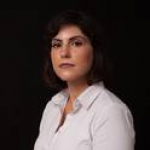
The aim of this Focus cluster is to take a scholarly, multidisciplinary and, we hope, fun approach to science and technology and the ways in which they reach the public. Our cluster will be a cohort of four courses dedicated to various aspects of science’s place in the world, including: patient activism and advocacy; the development of laws and policies governing science; the relationship between science and the performing arts; and human-machine interfaces in the twenty-first century. The weekly multidisciplinary discussion course will be dedicated to science communication and science outreach. Each course will explore, to varying degrees, “how the sausage gets made,” i.e., how science and technology happen; what becomes of them once they do happen; how they are conveyed to various publics; and stakeholder responses to them.

Misha Angrist, Associate Professor of the Practice at the Social Sciences Research Institute; Senior Fellow in Duke Initiative for Science & Society; Visiting Associate Professor of the Practice in the Sanford School of Public Policy
In the 1960s, patients appropriated the language and tactics of the civil rights movement to advance clinical and research agendas. Today patient activism is evolving, leading to new solutions, dilemmas, and organizational structures. This course will examine patient and research participant activism and the ways it challenges conventional notions of expertise, amateurism, "human subjects protections," and minimization of risk. Students will bring the tools of journalism, anthropology, humanities scholarship, public policy and community engagement/citizen science to bear on ethical and policy questions.

Clare Callahan, Instructor, Duke Initiative for Science & Society
How has landmark public policy changed the health landscape in the United States and influenced the way we think and talk about health as a social fact? How has cultural expression both registered these changes and sought to influence law and policy? What debates have played out in public discourse regarding policies that impact health and how can attention to language and narrative literacy help us to understand both the potential and the limits of policy work? This course will explore these interactions between policies that impact health in its social context and cultural expression, focusing on photography, literature, and film.

Jennifer Flaherty, Assistant Professor of the Practice in Slavic & Eurasian Studies
Can society be revolutionized by science? Can human experience be reduced to scientific laws? In this course we study literature, film, and poetry of revolutionary Russia and the radical legacy that led up to it. Topics and themes may include materialism/physicalism, idealism, serfdom and emancipation, utopias and dystopias, political concepts (authority, nationalism, populism, terrorism). Writers artists and filmmakers may include: Turgenev, Chernyshevsky, Pisarev, Chekhov, Zamyatin, Mayakovsky, Bulgakov, Platonov, Shklovsky, Eisenstein, Malevich, Kandinsky.

Jody McAuliffe, Professor of the Practice of Theater Studies and Slavic Language and Literature
Are you interested in learning how to reduce pain and anxiety, cultivate vitality, and improve performance in any area of your life? In this course, I will teach Awareness Through Movement—a system of body-awareness and lessons developed by Moshe Feldenkrais--designed to expand students’ possibilities for new movement patterns that are more comfortable, efficient, and useful. Students can anticipate improvement in posture, vision, imagination, and personal awareness. The Feldenkrais Method is a form of body work combining, science, art, expression, and function. Feldenkrais was an Israeli engineer, physicist, inventor, martial artist, and student of human behavior. The Method uses movement in a variety of ways to enable actors, athletes, musicians, dancers, and all movers to explore motivation and action, and other movement concepts: spontaneity, compulsion, resistance, and cross motivation. It focuses on the fundamentals of human functioning and developing potential, enabling students to travel beyond their habits in ways they may not have been able to envisage otherwise. The Method also asks all students to become more aware of how they learn. In addition to lessons, we will read and discuss Feldenkrais’ seminal text, The Elusive Obvious, and selected excerpts from other texts. Students will keep a learning journal, documenting their progress.